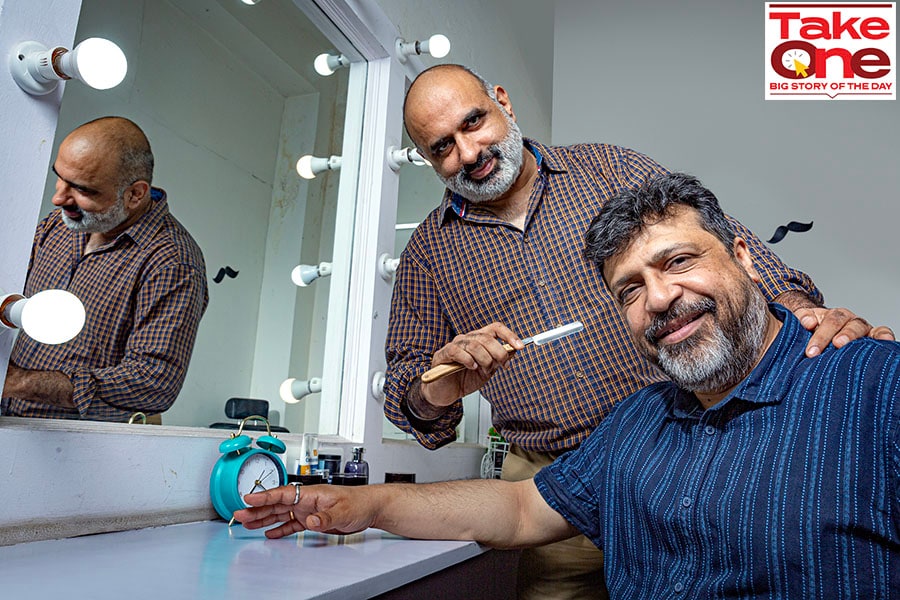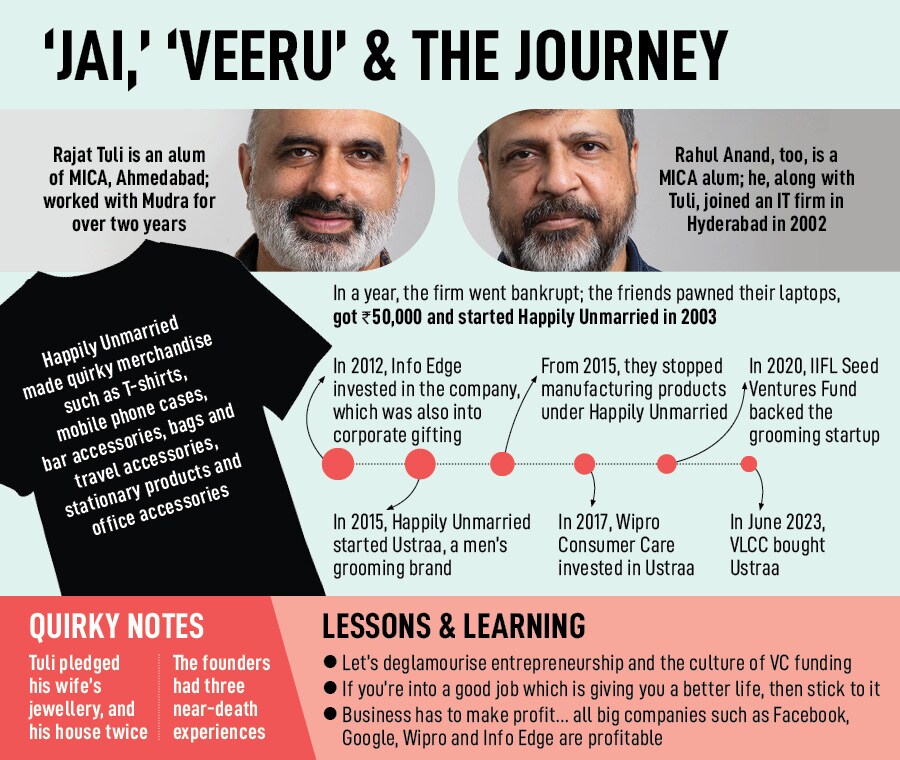
Happily Unmarried to Ustraa 2.0: Life on razor's edge
In 2003, Rajat Tuli and Rahul Anand got married to entrepreneurship. Over the next two decades, their conviction was tested to the hilt with Happily Unmarried, commitment was shaken to the core with Ustraa, and the duo survived a couple of close shaves. With a new partner in VLCC now, can the friends get a dazzling new look?
 Rajat Tuli (left) and Rahul Anand, co-founders, Ustraa, an online brand offering men's grooming products.
Image: Madhu Kapparath
Rajat Tuli (left) and Rahul Anand, co-founders, Ustraa, an online brand offering men's grooming products.
Image: Madhu Kapparath
Dunkin Donuts, Connaught Place, 2012. “Can we please pay for the coffee?” Rajat Tuli and Rahul Anand happily volunteered to foot the bill. The breakfast meeting lasted for an hour, Sanjeev Bikhchandani patiently heard the story of the happy-go-lucky friends who started Happily Unmarried in 2003, hustled in the business of selling quirky merchandise such as beer mugs and T-shirts for over nine years, and now for the first-time, the entrepreneurs had their maiden tryst with a big founder and funder. “He [Bikhchandani] was impressed with our story,” recalls Tuli.
The reaction was indeed impressive. Just a few days ago, the founder of Info Edge had a harrowing time enduring the drab presentation pitch of Tuli and Anand at an investment meet at Sheraton Hotel in Delhi. The founders of Happily Unmarried had built a cult following among the youth for their funky products, irreverent attitude and wacky wordplay. Though Tuli was convinced that Anand made a good presentation, the response from the audience was shockingly contrary to his expectations. “There were no giggles, no laughs, only long straight faces,” he recounts.
For the founders, who always had an enchanting way with words, the reaction was disappointing. Bikhchandani, who knew a bit about the founders because his daughter was keen to do a summer internship at Happily Unmarried, felt obliged to offer his advice to the hustlers after the event. “Normally, I see great presentations and bad business. But you guys had a lousy presentation and seem to have a decent business,” Tuli recounts Bikhchandani’s feedback. A 20-member team, a Rs5 crore-business, and an imposing fan following, the bootstrapped venture had a sedate growth till 2012.

In spite of their perpetual juggling act with their fragile financial state, and intermittently reaching out to family and friends for precious dollars—Happily Unmarried raised Rs30 lakh over two years—the founders had more than what was needed to buy Bikhchandani a coffee. The Info Edge biggie, though, made a priceless gesture. “Pay when you are profitable,” he smiled, decided to back the venture, and dished out a few invaluable nuggets: Take the business online, be more focussed, put a full stop to the bohemian lifestyle and get rid of fears.













